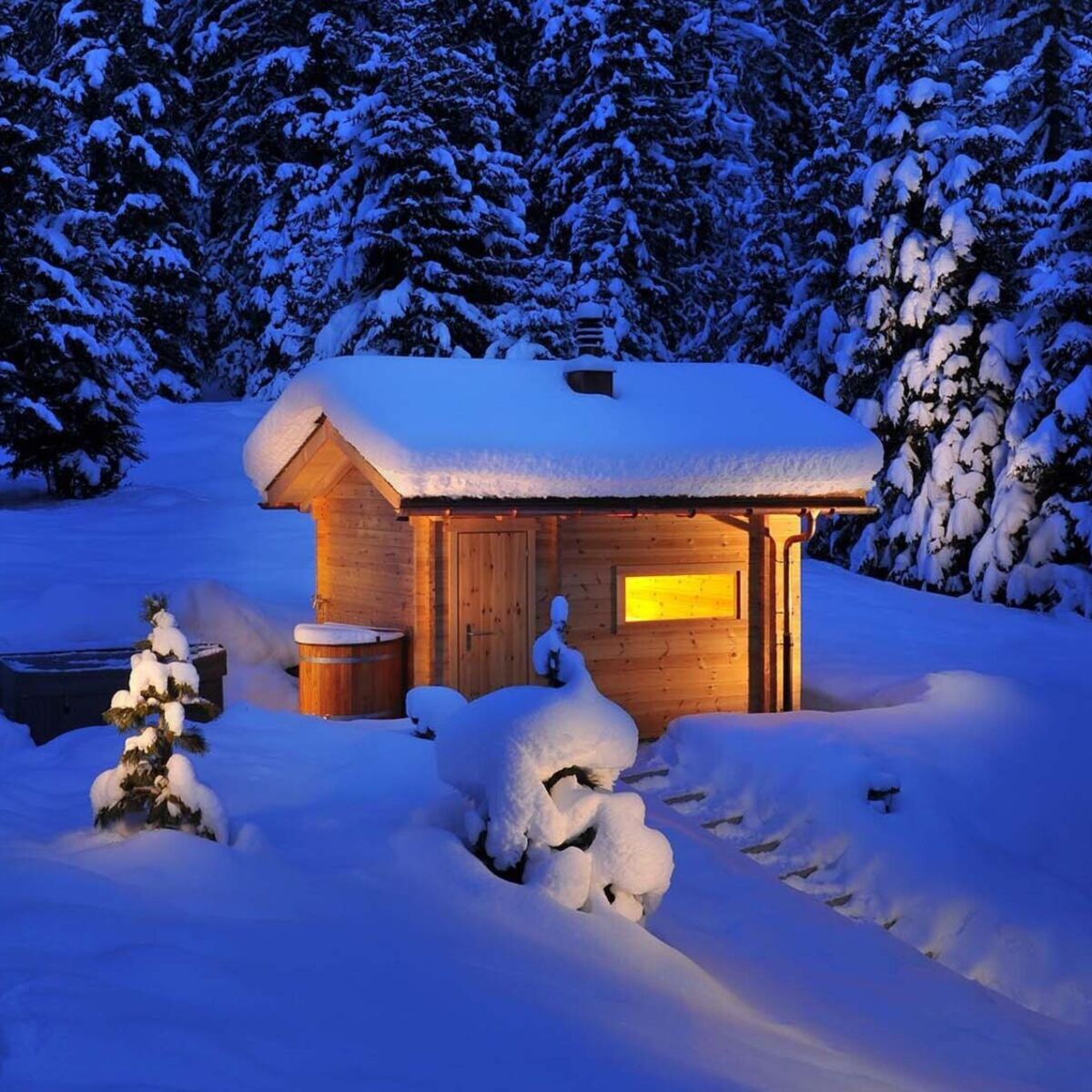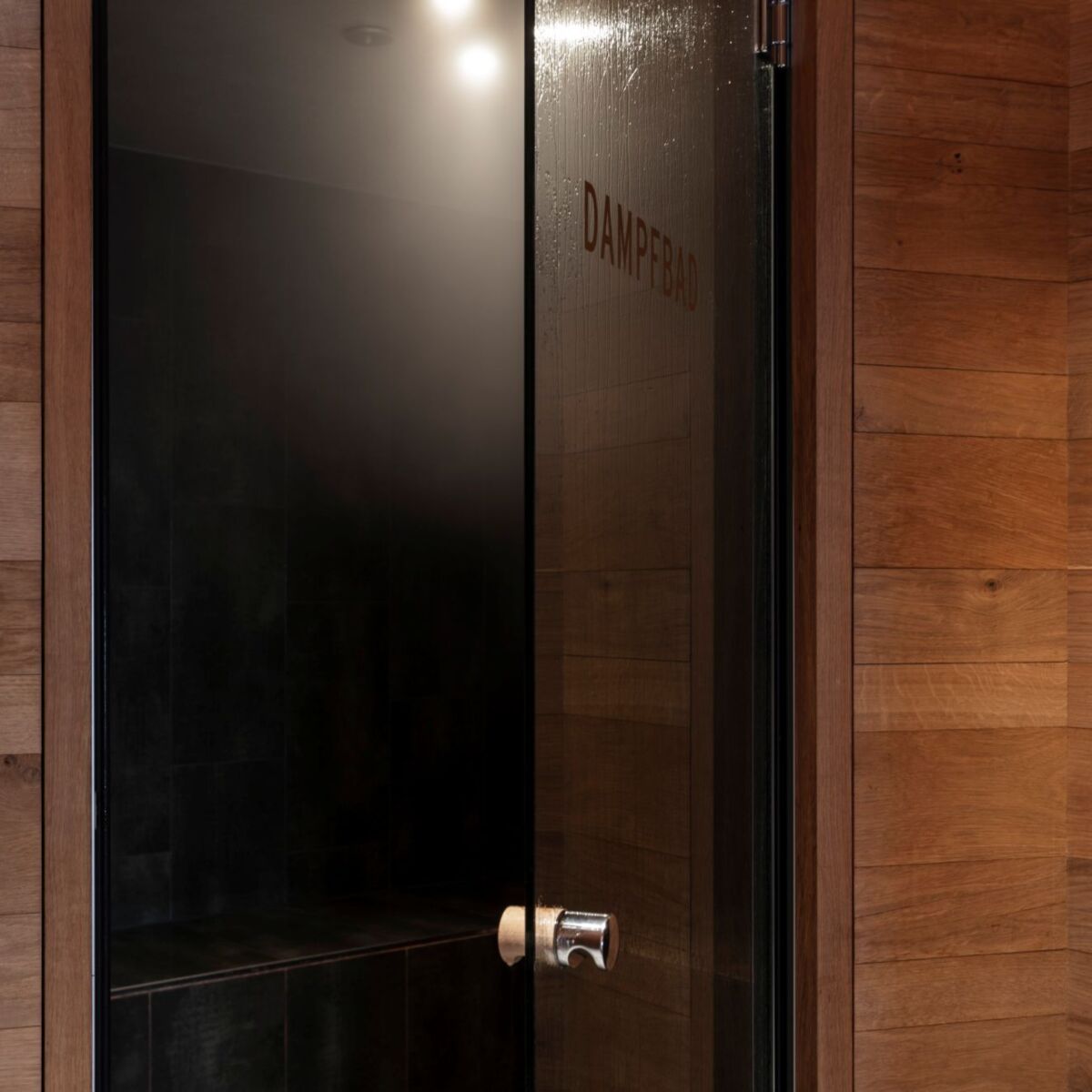Pool types: a comprehensive overview
Having your own pool in the garden is the dream of many homeowners. But when it comes to planning, the question quickly arises: which pool types and pool materials are right for me? In this article, we give you a detailed overview of the different pool types, their shapes and the advantages and disadvantages of each material.
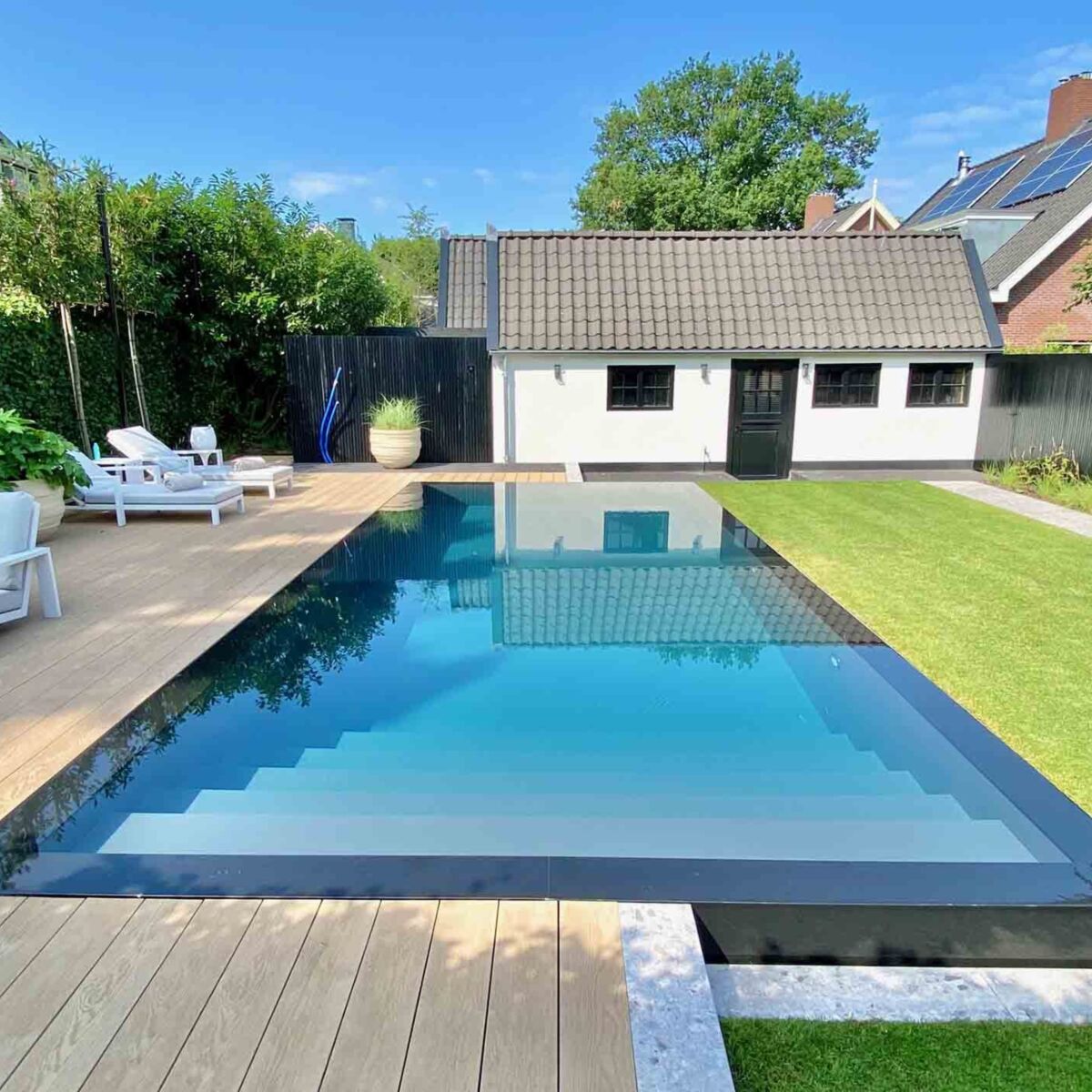
Pool types compared: Which one suits you?
Choosing the right pool type plays a crucial role in the long-term use and maintenance of your garden swimming pool. Each type of pool has its own advantages and challenges, depending on your individual needs, available space and budget. While above-ground pools impress with their flexibility and low costs, in-ground pools offer more individuality and greater longevity. The choice of material in particular has a decisive influence on the durability, maintenance requirements and long-term enjoyment of your pool.
Einbaupools: Beständig und individuell
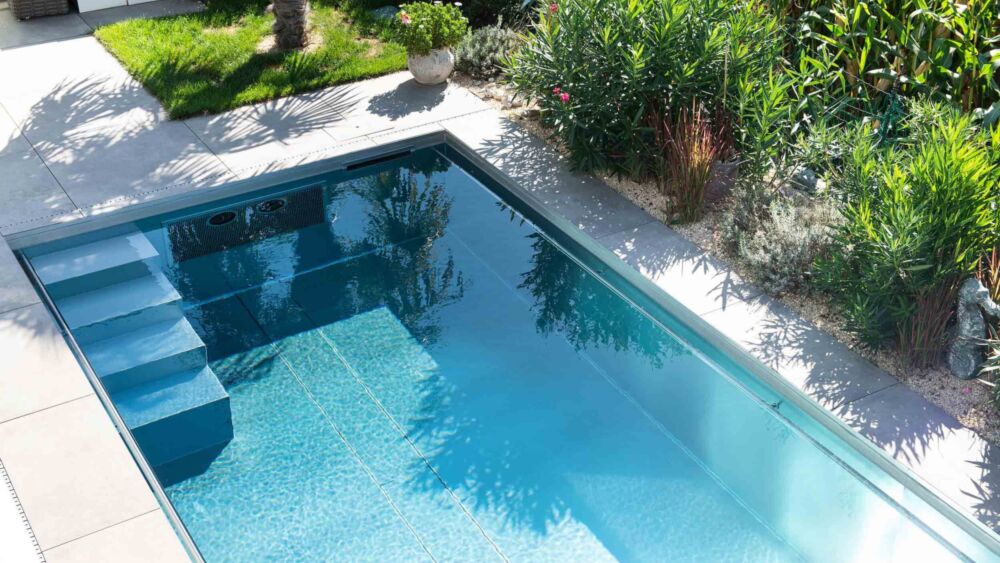
In-ground pools offer a stable, long-term solution and are permanently installed in the ground. They can be individually designed and blend seamlessly into the garden. Compared to above-ground pools, they are much more durable and resistant. Although they require a higher initial investment, they offer significantly better quality and long-term use. In-ground pools not only increase comfort, but also the value of the property. They are the better choice for anyone who wants a high-quality and durable pool.
Aufstellpools: Flexibel und kostengünstig
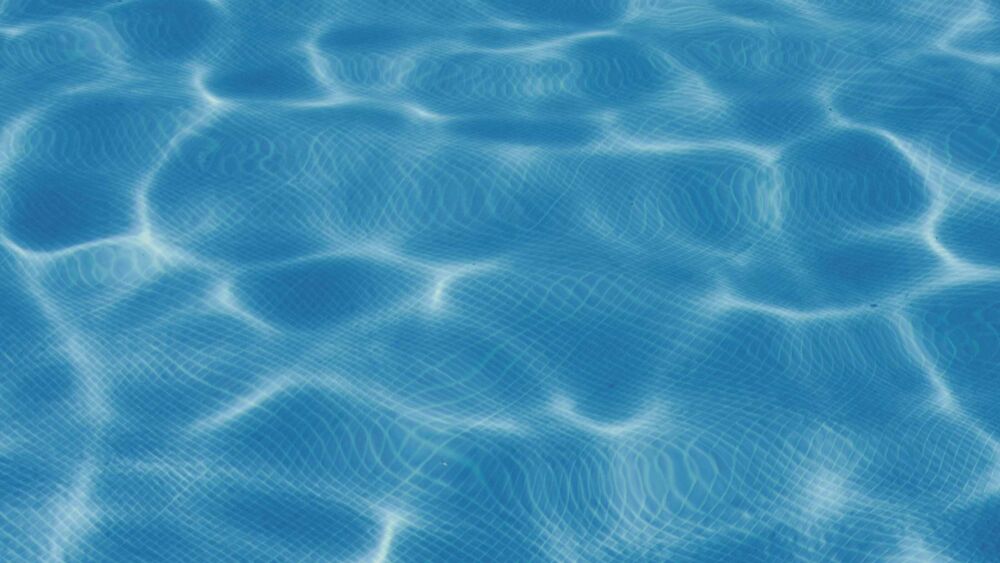
Above-ground pools offer a simple and cost-effective way to quickly install a swimming pool in the garden. They are flexible and can be dismantled and set up again at a different location if required. The bottom of the pool is usually lined with a plastic sheet that keeps the water in the pool. However, above-ground pools have a shorter lifespan and are more sensitive to the effects of the weather. In addition, they often have to be dismantled and protected in winter, which is less practical in the long term. They are also more difficult to integrate aesthetically into the garden as they do not fit seamlessly into the surroundings.
Pool materials: advantages and disadvantages at a glance
Not every pool is the same - materials, durability and maintenance requirements vary considerably depending on the type of pool. While some variants impress with their flexible design, others score points for their exceptional durability or elegant appearance. But which pool types for the garden are best suited to your needs? In our overview of pool types - advantages and disadvantages, we take a closer look at polypropylene pools, GRP prefabricated pools, concrete pools and stainless steel pools and show you which features characterize the individual options.
-
Concrete pools: Individual, stable and unique
A concrete pool is the perfect choice for anyone who values maximum design freedom. Whether rectangular, round, organically curved or entirely according to your personal ideas - concrete pools offer almost unlimited possibilities in terms of shape and size. They are particularly stable and can even cope effortlessly with difficult conditions such as slopes or irregular plots. Thanks to their robust construction, concrete pools are an investment for life. They convey a feeling of solidity and durability that is rarely found in other pool types. Although construction takes a little more time and waterproofing with a pool liner, which should be renewed after 10 to 20 years, is necessary, you get an individually designed pool that blends in perfectly with your surroundings and will give you decades of pleasure. A concrete pool is therefore much more than just a swimming pool: it is a statement of durability, individuality and value. -
Stainless steel pool: elegant and hygienic
A stainless steel pool is the undisputed queen of swimming pools. It combines timeless elegance with state-of-the-art technology and is hard to beat in terms of hygiene, durability and design. With its shiny, reflective surface, it is a real eye-catcher and adds a luxurious ambience to any garden. Stainless steel pools are absolutely corrosion-resistant, frost-proof and can withstand wind and weather for decades - without losing any of their beauty. The smooth surface not only makes cleaning child's play, but also prevents dirt and bacteria from settling. Stainless steel therefore sets new standards in terms of hygiene. Another advantage: stainless steel pools are virtually maintenance-free and retain their elegant appearance over the long term. Even if the purchase costs are higher, the investment pays off in the long term - because you get a pool that will last for generations. In short: if you opt for a stainless steel pool, you are not just choosing a swimming pool, but an exclusive lifestyle element that combines elegance, health and durability to perfection. -
GFK prefabricated basins: Inexpensive with restrictions
Glass fiber reinforced plastic (GRP) pools are a more cost-effective alternative to more durable materials such as polypropylene or concrete. They are available as prefabricated pools in various standard sizes and shapes, which allows for quick installation. Nevertheless, they are less robust in terms of their resistance to UV rays and weathering than polypropylene pools, for example, and have a shorter lifespan overall. The design options for GRP pools are also more limited compared to other variants. -
Polypropylene pools: Robust and durable
Polypropylene pools (PP pools) are among the most resistant pool variants. They are UV-resistant, frost-proof and insensitive to chemical influences - which guarantees a particularly long service life. Thanks to the smooth surface, neither algae nor dirt can accumulate, which makes cleaning much easier. PP pools also score points for their excellent thermal insulation, which reduces energy consumption for heating. Here is a brief overview of the most important properties:
Arrange a consultation now
Are you not sure which swimming pool is right for you or would you like specific advice? Arrange a no-obligation consultation and we will be happy to help you.
Livia Keller
Advice + Sales
Pool shapes: Aesthetics meets functionality
Choosing the right pool shape is crucial, not only for its appearance, but also for its possible uses and integration into your garden. Depending on the type of pool, the shape can have a significant impact on the overall appearance of your outdoor area and allow the pool to blend in perfectly with the existing landscape. Here are some of the most popular pool shapes:
- Rectangular pools: The classic pool shape, characterized by its clean lines and functionality. It is particularly suitable for sporty swimming, as the straight edges allow for longer distances, making the pool more practical. Rectangular pools fit perfectly into modern gardens or minimalist designs and also offer the advantage that they can be used optimally for the installation of counter-current systems or other swimming systems.
- Round pools: Round pools are particularly inviting and sociable. They are ideal for families and small garden areas, as they save space and fit harmoniously into smaller gardens or corners. Their round shape promotes a relaxing atmosphere and is ideal for socializing with friends and family. These pools usually have no sharp corners, making them a safe choice for families with young children.
- Freeform pools: These pools offer the greatest design freedom and adapt perfectly to the natural features of your garden. With organic, curved shapes, free-form pools can create a particularly natural aesthetic. They blend harmoniously into the garden landscape and offer plenty of scope for creative designs. These pools can be individually designed, whether through asymmetrical shapes or the integration of waterfalls and other decorative elements.
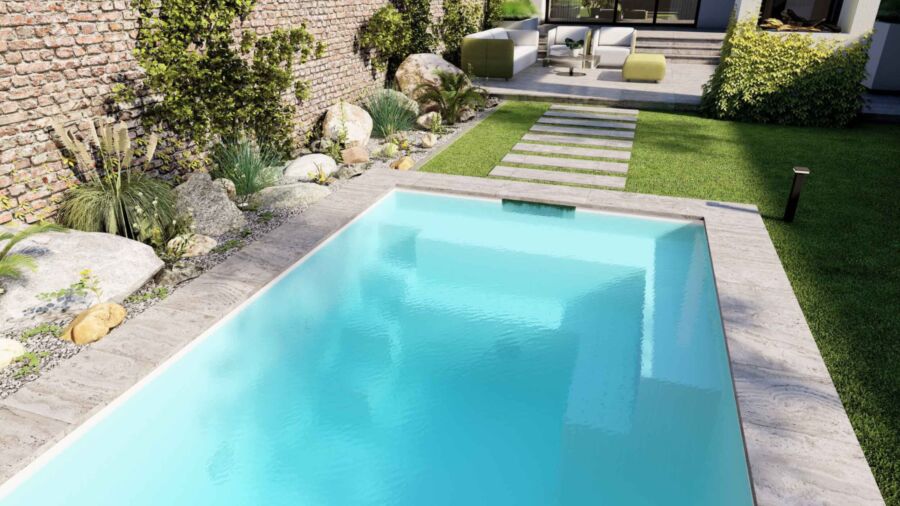
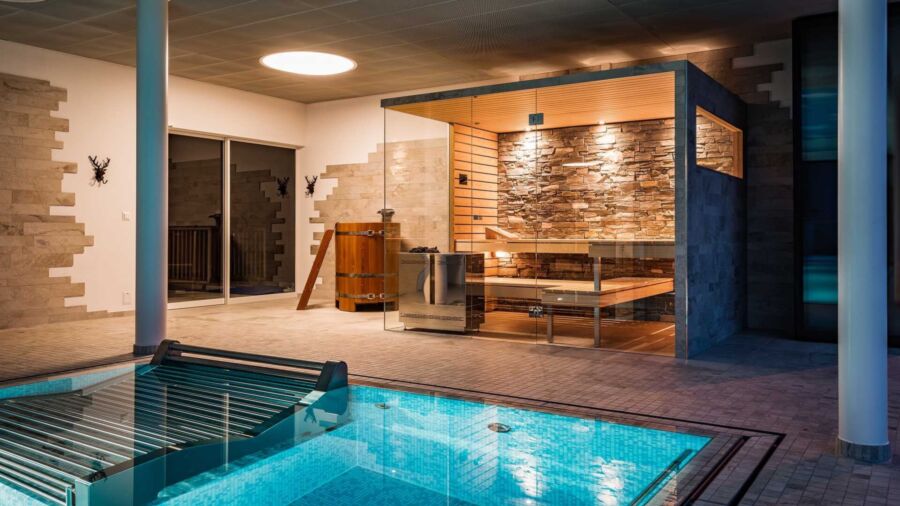

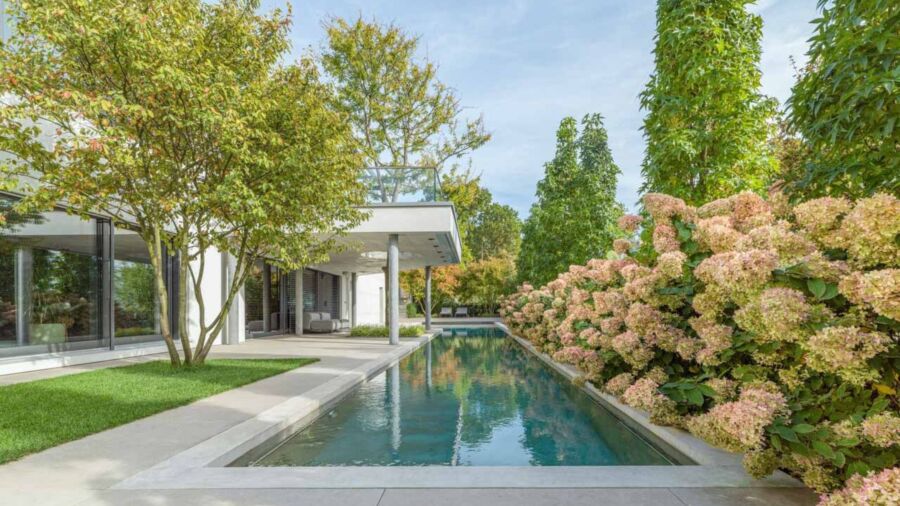
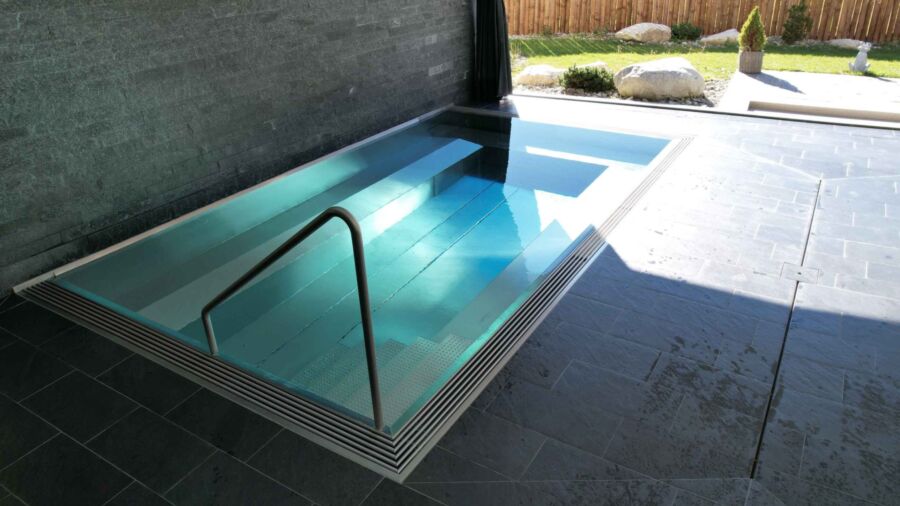
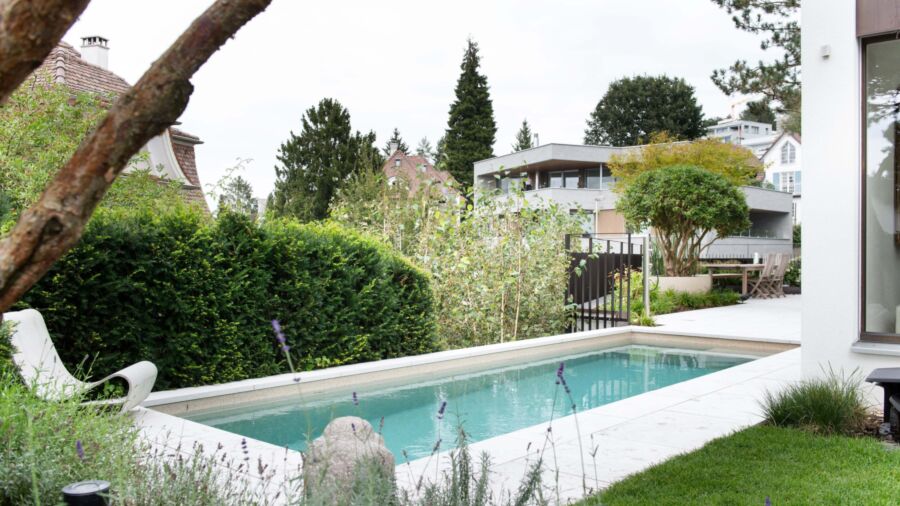
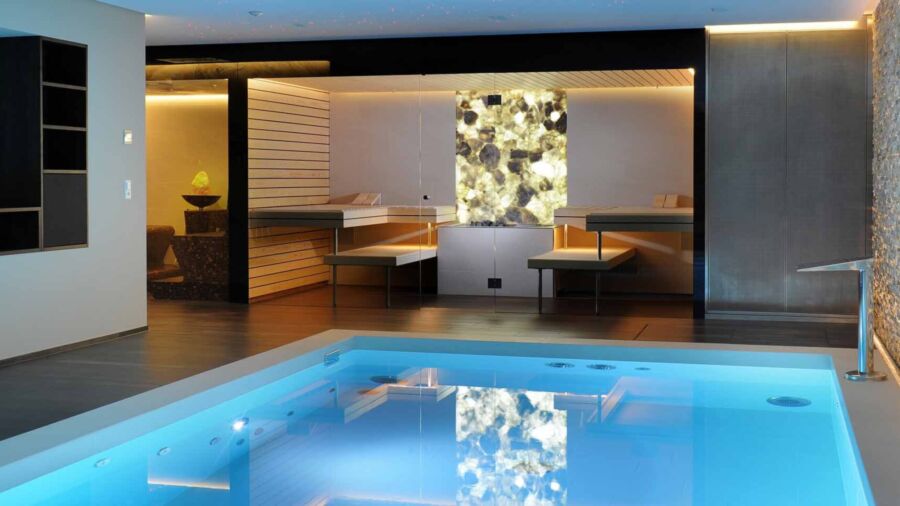
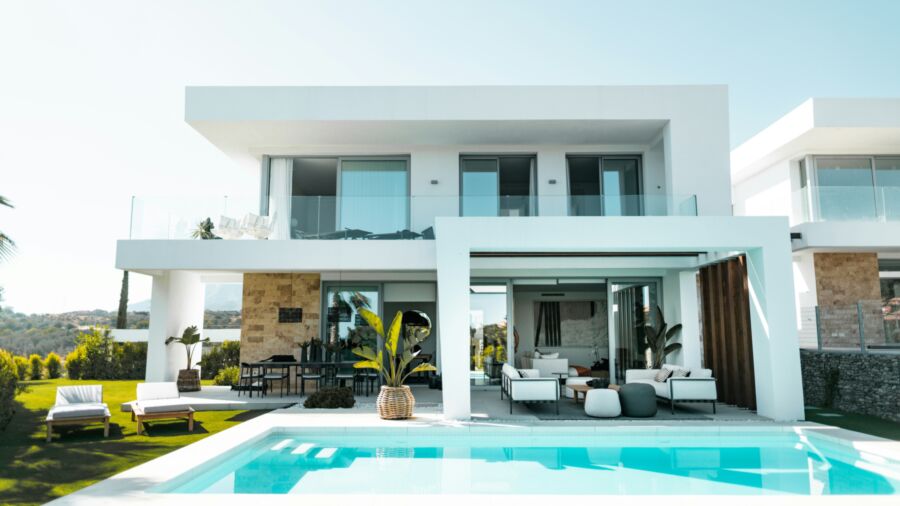
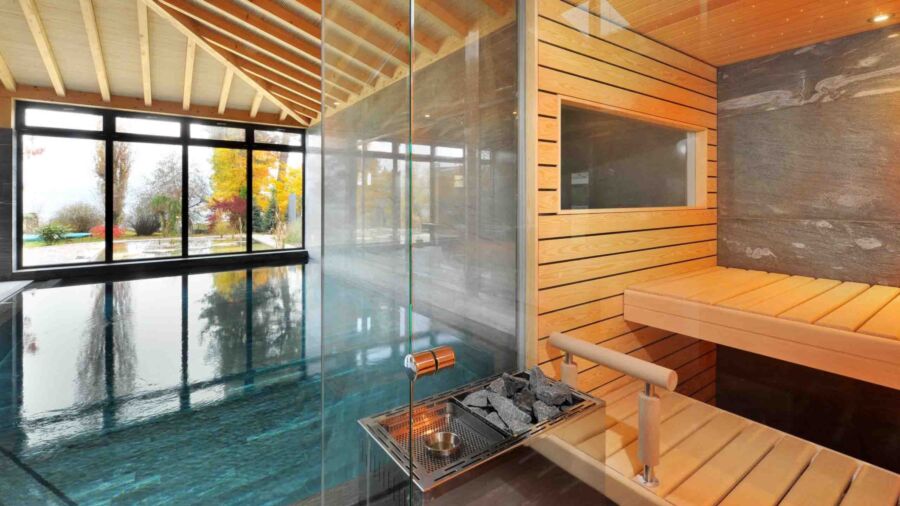
Pool types for your garden: the right decision for your dream pool
Choosing the right type of pool and suitable pool material depends on your individual needs, the available budget and the conditions of your garden. When deciding on the right pool, not only the size and types of pool play a role, but also the ground and the type of construction. Whether you are planning a pool for sports, a pool for family fun or a pool as part of a wellness oasis - each concept has different requirements. While some pool types, such as concrete pools, impress with their stability and durability, others, such as above-ground pools, require less effort and are more flexible.
The installation of a pool must be carefully planned, especially if it is to be built into the ground. Thoroughly weighing up the pros and cons of the various pool types and materials is crucial if you want to enjoy your own pool in the long term. If, in addition to whirlpool a whirlpool, you are also thinking about buying a high-quality building a sauna in Switzerland or are interested in building a sauna in Switzerland, you will find the right solution for your wellness oasis with us.

